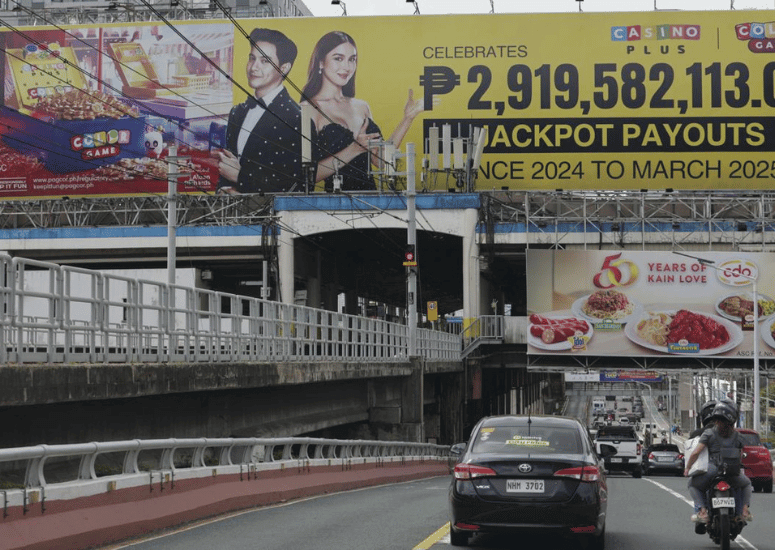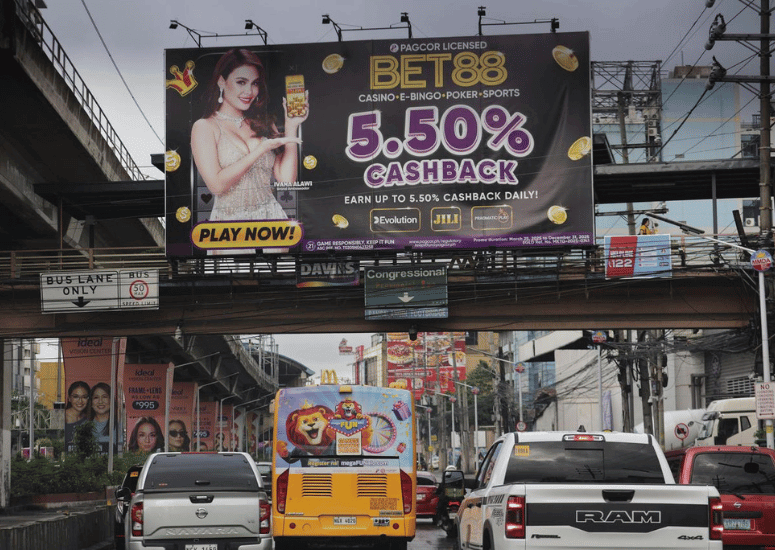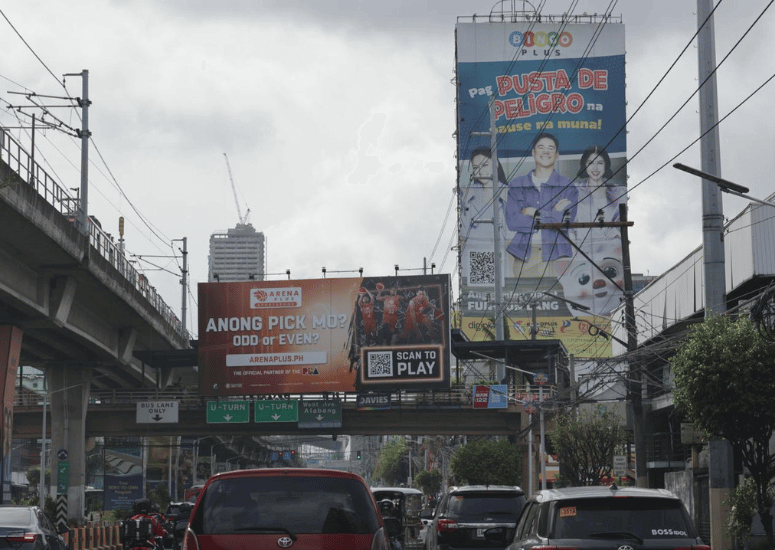When celebrities endorse online gambling: Is it legal, ethical, or both?
Online gambling ads are everywhere these days. You can see them all bright and colorful on TV, social media platforms, and billboards, with big prizes involving real money.
Apart from the enticing rewards, showbiz personalities appear as endorsers, holding up phones and pointing to screens showing online casino games.
The Philippine Amusement and Gaming Corporation said that e-games and e-bingo were the industry's top revenue drivers, contributing P51.39 billion to the 2025 first quarter gross gaming revenues.
Lawmakers have raised concerns about the proliferation of online gambling in the country, with some seeking stricter laws and others a total ban on all its forms.
Sen. Win Gatchalian recently filed a bill looking to impose stricter e-gambling regulations to help fight the growing addiction among users, especially the youth. Under the proposed measure, betting games linked to e-wallets will be banned, and the minimum cash-in amount will be set at P10,000, a significant increase from the cash-in requirement of P50 on some sites, to "discourage impulsive and easy access to gambling platforms."

Titled "An Act Regulating Gambling in the Philippines," the proposed bill will also prohibit gambling sponsorships of public events and campaign donations, and will mandate regulators to allocate a portion of collected regulatory fees for the establishment of gambling addiction rehabilitation centers.
“Due to its accessibility, online gambling activities have magnified the dangers from gambling and have been linked to the erosion of our moral fibers, as it has caused an increase in mental health problems, financial problems, addictive behavior, vices, and crime rates,” Gatchalian said.

Michael Varcas / The Philippine STAR
Sen. Migz Zubiri, who is seeking a total ban on online gambling through Senate Bill No.142 or the "Anti-Online Gambling Act," appealed to celebrities to stop using their influence to promote online gambling.
"Nakikita ninyo naman 'yung nangyayari ngayon, baka puwede na kayong mag-pull out mismo," Zubiri said in a July 7 press briefing, stressing that online gambling, which he described as "a silent epidemic," is financially harming the youth. "Alam kong malaki ang bayad sa inyo, but pag-isipan ninyo naman na nangyayari na 'yun sa ating mga kabataan, sa ating mga kababayan."
For its part, the Department of Finance is eyeing a tax on online gaming activities.
Celebrity influence
The participation of celebrities in online gambling advertisements has sparked discussions on social media, eliciting mixed reactions from Internet users.
"Those self-righteous celebrities endorse or promote online gambling since [it's] 'legal' naman daw. What may be legal may not always be ethical," a Facebook user wrote.
Another one pointed out that many people "still struggle to fully understand the risks" of gambling, even though there are disclaimers warning about the dangers that come with it. "If stricter access restrictions were in place, we could potentially limit and prevent the easy overspending of their hard-earned money," they said.

Some users, meanwhile, said that regardless of whether a celebrity endorses it, participating in online gambling is a personal choice.
"Anong masama sa pag-casino? Hindi naman pera mo ang ginamit. Toxic behavior 'yan, nakikialam sa buhay ng iba. Saka kung may mga artista nag-endorse, eh nasa tao pa din kung magsusugal or hindi," an X user wrote.
"May choice or option ang mga celebrities to endorse anything including online game/casino," a Facebook user wrote. "Kanya-kanyang buhay lang 'yan. I'm pretty sure walang pake 'yung mga celebrities na 'yan kung icancel n'yo sila, kasi hindi naman tayo directly nagpapakain sa kanila and hindi rin naman nila tayo kilala para pag-aksayahan pa ng oras."
Ad rules and risks
While endorsing online gambling is not illegal, Atty. Hyacinth Merioles of Calleja Law told PhilSTAR L!fe that it can be ethically problematic for celebrities as they could encourage minors or vulnerable sectors to engage in risky behaviors.
She also stressed that such can lead to the normalization of online gambling, since it can downplay its "addictive and financially destructive potential."
Since celebrities hold influence on other people, Merioles underscored their social responsibility to the public.
"Public figures are often expected to uphold values of social responsibility. Promoting online gambling—even when legal—can be viewed as inconsistent with that expectation, especially in a country where problem gambling remains a social issue," she said.
Merioles added that celebrities endorsing licensed online gambling platforms are not entirely safe from legal repercussions. "If the gambling advertisement violates PAGCOR regulations—for instance, by targeting minors or using deceptive messaging—the endorsing celebrity may be implicated or at least compelled to explain their involvement," she said.
They may also face civil liability, such as the violation of the Republic Act No. 7394 or the Consumer Act of the Philippines.
"Endorsers may be held liable if their endorsement misleads the public or omits critical disclaimers. This can include failure to state that gambling involves risk or is for adults only," she added.

Atty. Marichu Lambino, Assistant Professor at UP College of Media and Communication, also told L!fe that entertainment personalities who endorse unlicensed online gambling platforms may be considered "accomplices or accessories."
"Unlicensed online gambling platforms will fall under the provisions of the Revised Penal Code prohibiting gambling or any game of chance, and all those who participate in it can be proceeded against—those who publicly market it as endorsers can be proceeded against either as accomplices or accessories," she said.
According to Merioles, celebrity endorsers are also at risk for reputational damage, which may lead to them losing existing contracts from other brands that stray away from gambling, alcohol, or vice-related products.
"In sum, while there is a legal path to endorse online gambling platforms under current Philippine laws, the associated risks—both legal and ethical—are significant," she continued. "Celebrities and influencers are strongly advised to perform due diligence and consult legal counsel before entering into such endorsements."
PAGCOR ordered the removal of gambling billboards and out-of-home ads by Aug. 15 as part of its efforts to regulate the promotions of the vice. In a statement sent to L!fe, the agency said only its approved institutional or responsible gaming campaigns will be permitted moving forward.
“While PAGCOR is mandated to regulate the gaming industry and generate revenues for nation-building, we do not want to encourage a culture of gambling addiction,” PAGCOR Chairman and Chief Executive Officer Alejandro Tengco said. “Regulating excessive and pervasive gambling advertisements is a critical step in protecting vulnerable sectors of society, especially the youth.”


